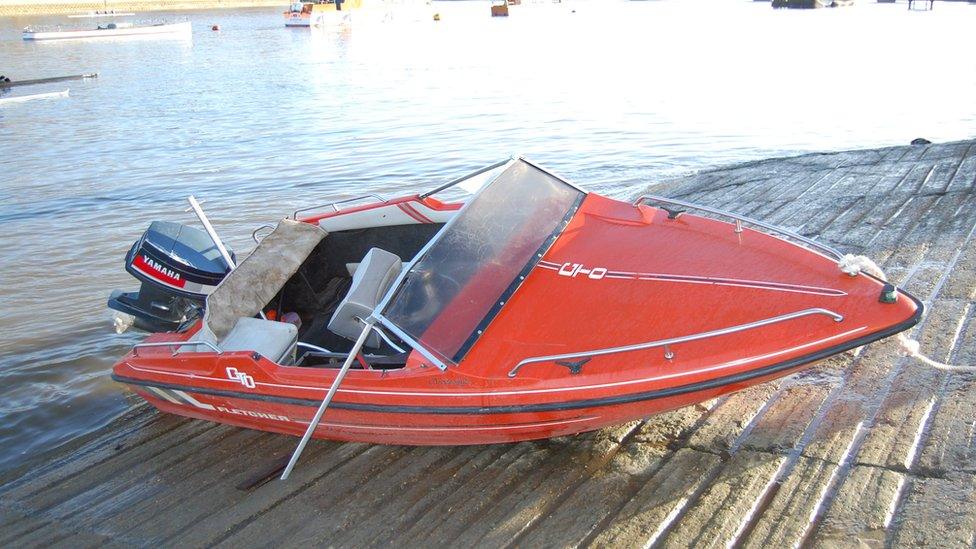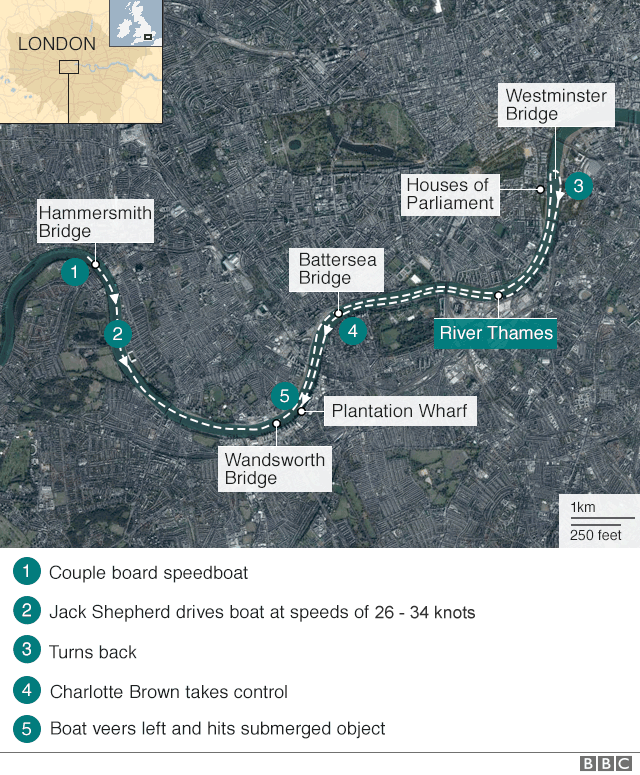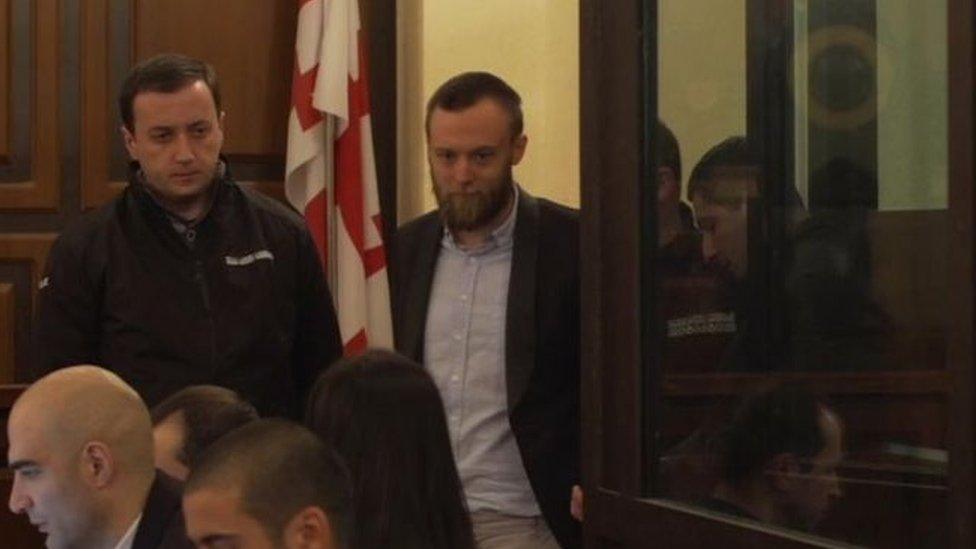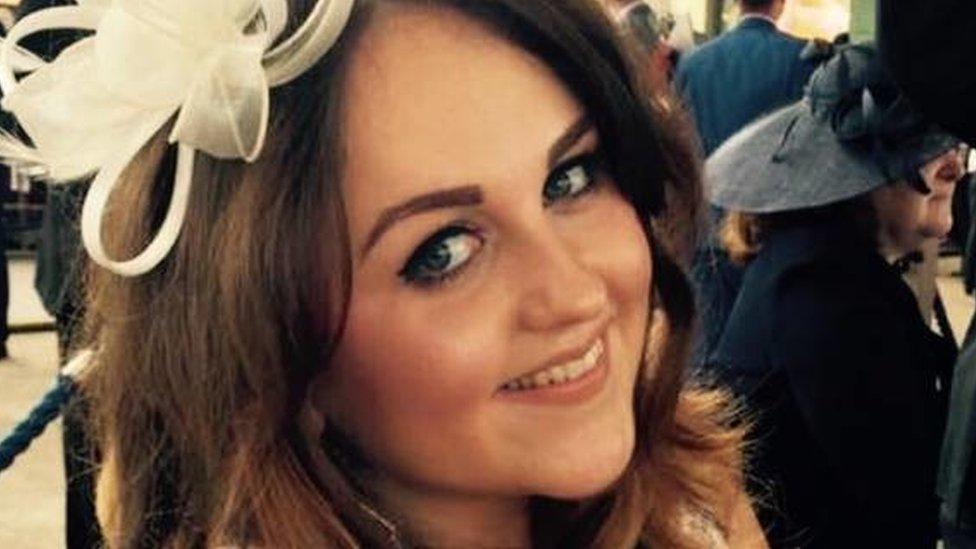Jack Shepherd: Speedboat killer will return to UK
- Published

Prosecutors argued there was nothing to prevent Jack Shepherd being extradited from Georgia
Speedboat killer Jack Shepherd is to be sent back to the UK after agreeing to his extradition from Georgia.
The 31-year-old went on the run before his trial where he was found guilty of manslaughter following a speedboat crash on the River Thames which killed Charlotte Brown.
After months in hiding in the capital, Tbilisi, he handed himself into police and was jailed for three months.
Shepherd has been granted the right to appeal against his UK conviction.
Judge Arsen Kalatozishvili agreed to the extradition going ahead, following a hearing at Tbilisi City Court.
The court heard Shepherd's extradition order was based on both the manslaughter offence and a separate assault charge.
The second charge relates to an incident - shortly before Shepherd fled to Tbilisi - in Moretonhampstead, Devon, on 16 March 2018.
Shepherd is accused of causing grievous bodily harm with intent.
Jack Shepherd's cell in Tbilisi
Defence lawyers said Shepherd had agreed to be extradited, but only if his safety was taken into consideration by the judge.
Speaking before the hearing, his lawyer Mariam Kublashvili told Rustavi-2 TV Shepherd feared for his safety in the UK.
She said: "Because of the attitude of the British media and public he truly does not feel himself to be human."

Shepherd's boat was found to have several defects
Outlining the extradition case, prosecutor Naniko Zazunashvili argued there was nothing to prevent Shepherd being sent back to the UK.
Ms Zazunashvili said: "He knew the boat was not in good working order and knew Charlotte Brown had no skills to control the boat - and he let her control the boat.
"While being on board the boat Jack Shepherd took obligation to take care of Charlotte Brown, but this obligation was violated.
"He knew boat was in poor working order. We are sure that if he is extradited there will be no threat to his life."
MP James Brokenshire said Charlotte Brown's family "clearly welcome the news" that Shepherd agreed to be extradited.
"It is their wish that he now accepts responsibility and atones for his actions, also that he drops the appeal against his conviction which can only cause more pain and anguish," he added.

In court
Steve Rosenberg, BBC News Moscow correspondent, Tbilisi

Jack Shepherd gave himself up in the former Soviet state in January after months on the run
In Courtroom Number 3, Jack Shepherd sat impassively while his fate was being decided.
After the prosecution had set out the case for extradition, Shepherd's defence team dismissed the arguments as "groundless".
But Shepherd had already decided to return to Britain. "He agrees to extradition," announced one of the defence lawyers.
When the judge invited him to speak, Shepherd confirmed the decision. He was ready to return to the UK, he said, because he wanted to take part in his Appeal Court hearing.
Two months after he handed himself in to Georgian police, the legal process in Georgia appears to be nearing its conclusion. The extradition order will need to be approved by the Georgian Justice Minister, before Shepherd can leave Georgia.
One of Shepherd's lawyers in Georgia, Tariel Kakabadze, said he could return to the UK within two weeks.

Shepherd met Ms Brown online and they went on a date on 8 December. He invited her to go on a speedboat ride.
They were thrown from the boat when it hit branches in the water near Wandsworth Bridge at about midnight.
Ms Brown, from Clacton-on-Sea in Essex, was found in the water unconscious and unresponsive. Shepherd was clinging to the upturned boat.

Shepherd made his first appearance at the Old Bailey on 26 January 2018, when he entered a not guilty plea to a charge of manslaughter by gross negligence.
He was released on unconditional bail by Judge Richard Marks QC, but failed to show up for his trial and was later sentenced in his absence to six years in jail.
Despite being on the run, Shepherd won the right to appeal against his conviction.
However, the Court of Appeal said Shepherd had been refused permission to appeal against his sentence.
- Published25 March 2019

- Published22 January 2019

- Published23 January 2019

- Published2 January 2019
